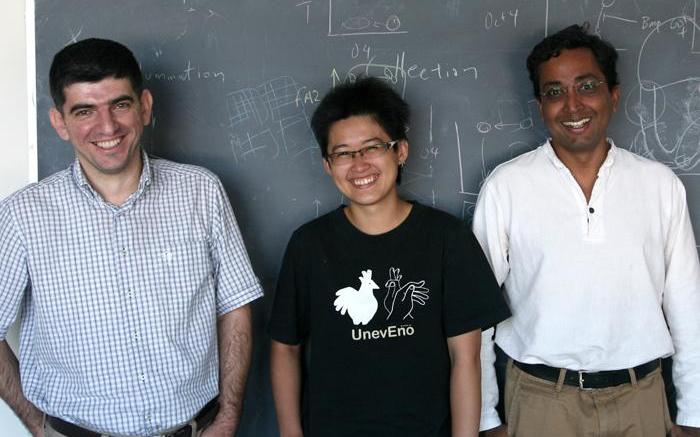Bilkent Alumnus Hijacks Brain Cells to Control Worms' Minds
(L to R) Postdoctoral fellow Aşkın Kocabaş, research assistant Ching-Han Shen and Sharad Ramanathan, assistant professor of molecular and cellular biology at Harvard University
Department of Physics alumnus Aşkın Kocabaş -- a postdoctoral fellow in molecular and cellular biology at Harvard University -- and his colleagues have developed a novel technology to control brain activity in a freely moving animal (Caenorhabditis elegans, a tiny, transparent worm). The team employed a real-time imaging system together with lasers and optogenetic tools to stimulate the exact nerve cells that would trigger a particular behavior in order to understand how C. elegans navigates its environment. Using a virtual light environment, they succeeded in making the animal think there was food present and discovered that controlling the dynamics of activity in just one interneuron pair was sufficient to impel the animal to find this virtual food. The findings are described in the October 11 issue of the research journal Nature.
Dr. Kocabaş completed a PhD degree in physics in 2008 under the supervision of Prof. Atilla Aydınlı (PHYS) at Bilkent University. Following this, he received a prestigious fellowship from the Human Frontier Science Program (HFSP). HFSP fellowships support postdoctoral researchers who propose groundbreaking interdisciplinary projects that have the potential to advance knowledge in their fields of study and open up new approaches to research problems. To watch a video:
http://www.youtube.com/watch?v=YiDMeq1l9mU&feature=player_embedded .
